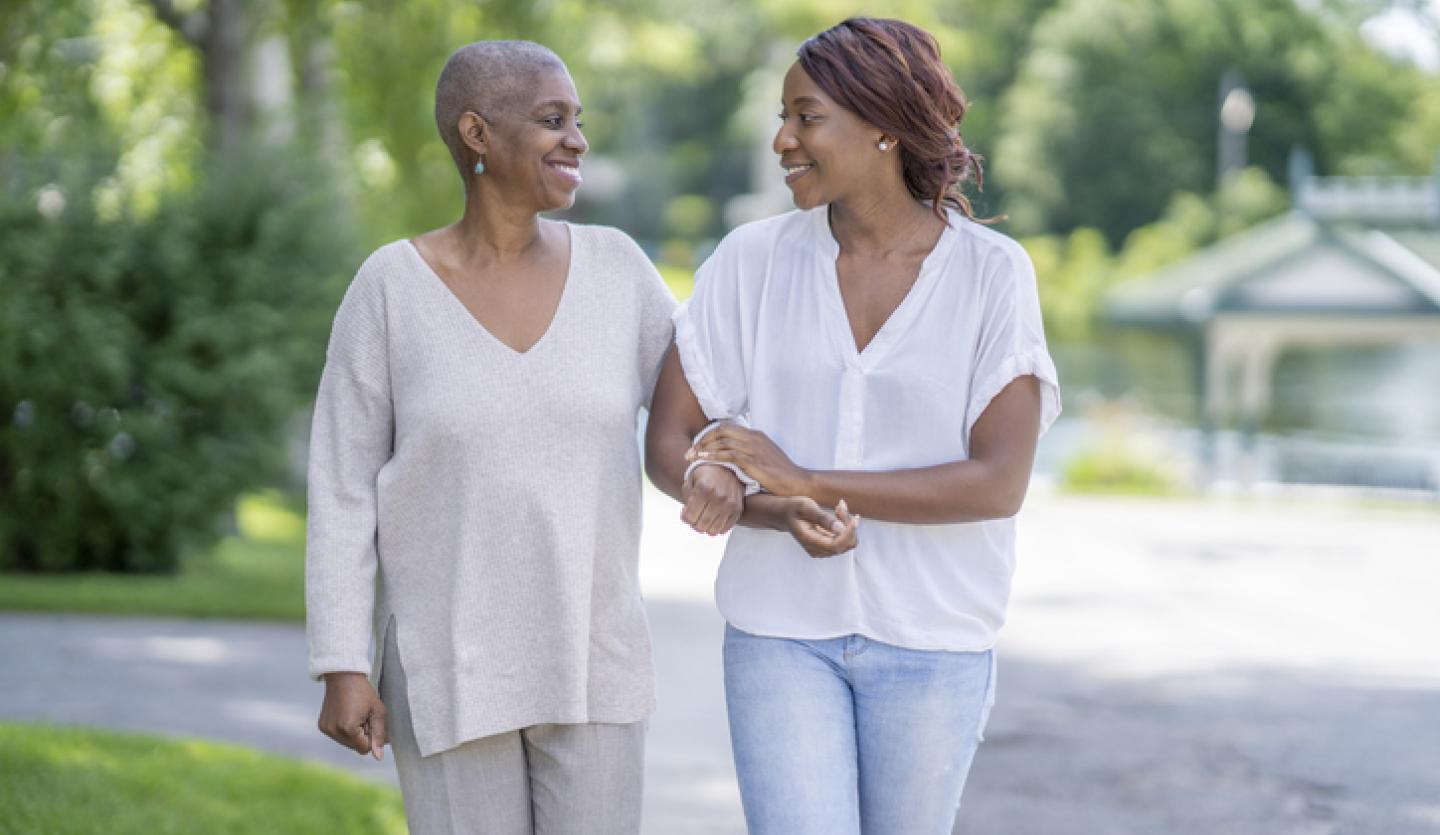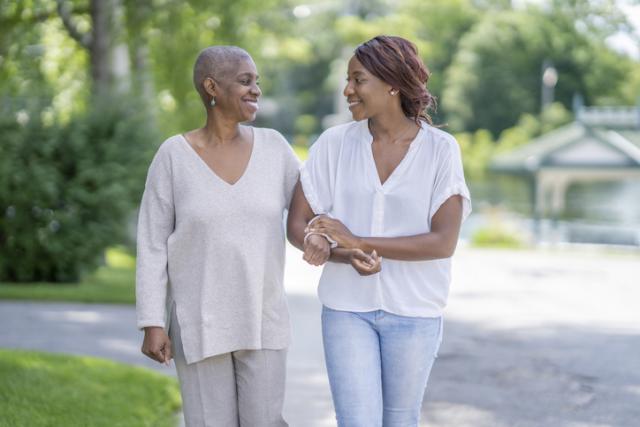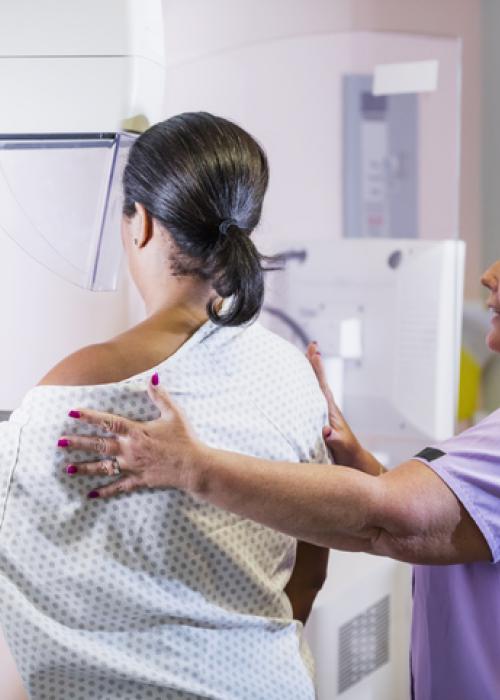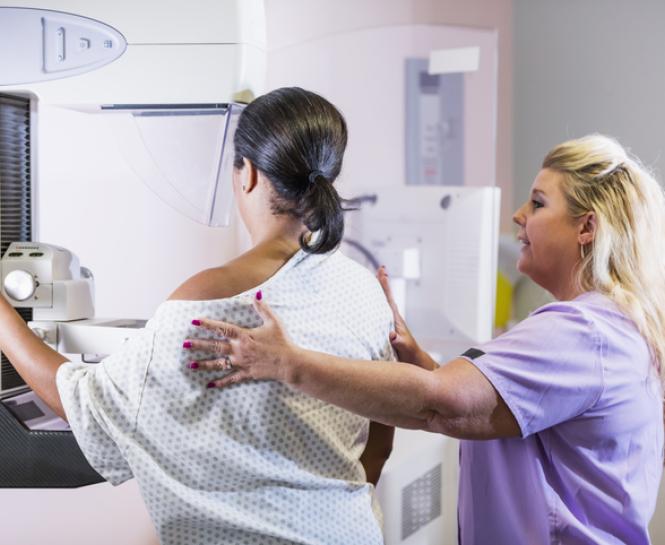Jessica Kenney, certified genetic counselor and manager of Catholic Health’s Clinical Genetic Counseling multispecialty program, shares what you need to know about BRCA1 and BRCA2 genes and why you may need genetic counseling.
What are BRCA genes?
Nearly 5% to 10% of breast cancer cases are hereditary. BRCA1 and BRCA2 genes are the most common cause of hereditary breast cancer but can also indicate an increased likelihood of developing other cancers like ovarian, prostate and pancreatic cancer.
BRCA1 and BRCA2 genes create proteins that respond to DNA damage from lifestyle and environmental risk factors. Technically, they help repair DNA damage to prevent cancer from developing. But, if there is a hereditary mutation in the gene, then it cannot repair DNA damage to fight off cancer.
They are named BR for breast and CA for cancer (BRCA).
What is the difference between BRCA1 and BRCA2 genes?
BRCA1 and BRCA2 are separate genes that repair DNA damage, but each gene indicates different cancer risks.
BRCA1 mutations are associated with the following compared to BRCA2:
- Slightly higher breast cancer risks
- Significantly higher ovarian cancer risk
BRCA2 mutations are associated with the following compared to BRCA1:
- Slightly higher male breast cancer risk
- Slightly higher prostate cancer risk
- Slightly higher pancreatic cancer risk
- Slightly higher melanoma risk
Learn more about other gene mutations that can increase the risk of certain types of cancer.
Why are BRCA genes commonly associated with an increased risk for breast cancer?
An inherited mutated copy of BRCA1 or BRCA2 from a parent means you have a higher risk for breast cancer. By age 80, a woman with a BRCA1 or BRCA2 gene mutation has up to an 80% chance of being diagnosed with breast cancer.
Should I get genetic counseling to be tested for the BRCA genes?
Talk to your doctor about genetic counseling, especially if you have a family history of breast cancer. If you do not have a BRCA or other breast cancer gene mutation, then a family history of related cancers can mean cancer risks for you. For example, a first-degree relative (mother, sister or daughter) diagnosed with breast cancer nearly doubles a person’s risk, and two first-degree relatives with breast cancer increase the risk three-fold.
What is the genetic counseling process?
A genetic counselor will meet with you to discuss the following:
- Your health history, including lifestyle and environmental conditions.
- Your family tree—dating back three generations. Learning and understanding your family history in preparation for this appointment is important. If you do not know your family history, your genetic counselor will discuss other options to learn if you carry a genetic variant that increases the risk for cancer.
You will provide a sample of blood or saliva that gets tested for genetic mutations. Your genetic counselor will discuss the results and advise you on the next steps.
You should meet with your genetic counselor every three to five years to update your medical record and family health history.
Learn more about the genetic counseling process.
If I have a BRCA mutation, does that mean I will get breast cancer?
No. Although your risk increases, there is no guarantee you will develop breast cancer. Other factors like lifestyle and environment can also increase cancer risk. Scheduling your annual mammogram is vital to detecting breast cancer at an early stage when most treatable.
Find Care at Catholic Health
Genetic counseling is available at St. Francis Hospital & Heart Center® (Roslyn, NY), Good Samaritan University Hospital (West Islip, NY), Mercy Hospital (Rockville Centre, NY) and St. Catherine of Siena Hospital (Smithtown, NY). Your physician can provide a referral. Health insurance typically covers the cost of genetic counseling, but coverage for genetic testing varies. Please call your provider for more information.
Call 844-86-CANCER (866-993-0638) for more information. View our genetic counseling services.







